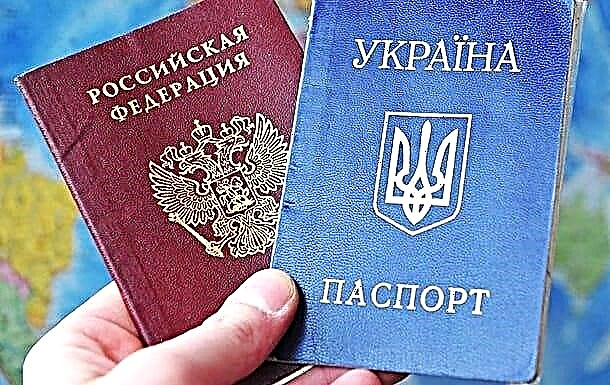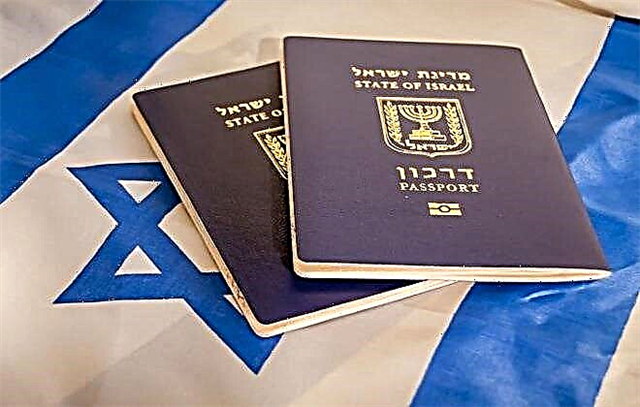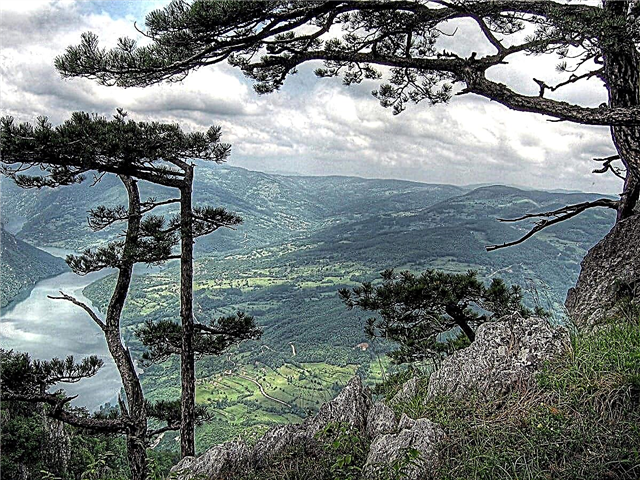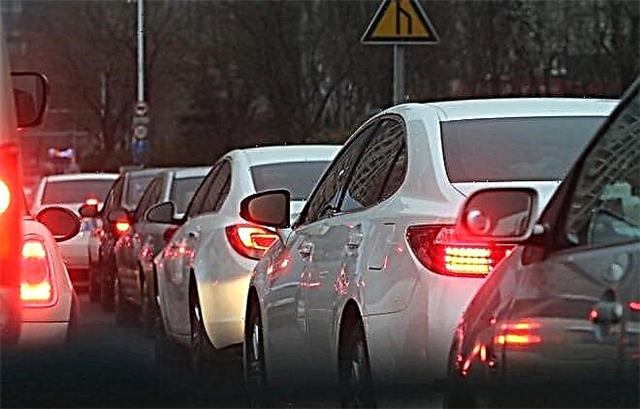Before traveling to a foreign country by car, you must first familiarize yourself with the local traffic rules. Many drivers in the post-Soviet space rely on their experience to be sure that the roads are the same everywhere. In most cases, this really works, but we must not forget that national rules may not be obvious to the Russian car enthusiast at some points. Traffic rules in Bulgaria also have features.

Roads in Bulgaria
 When preparing for a trip, a driver must know not only what license can be used to drive in Bulgaria, but also the rules for using foreign roads, parking spaces and the size of penalties for traffic violations.
When preparing for a trip, a driver must know not only what license can be used to drive in Bulgaria, but also the rules for using foreign roads, parking spaces and the size of penalties for traffic violations.
Trails in Bulgaria leave much to be desired. Pits on them are common, so those who like fast driving need to be especially careful.
Toll roads in Bulgaria are marked with a special sign.
Cars move along these roads for a fee (vignette). It is formed taking into account the category of transport and the duration of the use of the tracks.
You do not need to pay when driving on city, district and ring roads.
Vignette cost (in euros) for cars weighing up to 3.5 tons for 2021:
- week - € 8;
- 1 month - € 15;
- 90 days - € 28;
- year - € 50.
You can buy a vignette for euros or dollars, for this special points of sale are allocated. They are usually located in the border area and at gas stations.
Ferry crossings are special travel areas. You need to pay for travel on bridges across the Danube between the cities of Ruse (Bulgaria) - Giurgiu (Romania) and Vidin (Bulgaria) - Calafat (Romania). There are also ferries between the cities of Silistra (Bulgaria) / Calarasi (Romania), Nikopol (Bulgaria) / Turnu Magurele (Romania) and others.
Fares for the most popular Euro ferry crossings:
| TS | Ruse - Giurgiu | Vidin - Calafat |
|---|---|---|
| Motorbike | --- | --- |
| Vehicle with 8 + 1 seats (with driver) / private cars | 2 | 6 |
| Cargo vehicles plus a trailer with a maximum weight of up to 3.5 t | 6 | 6 |
| Cargo vehicles plus a trailer, from 3.5 to 7.5 t | 12 | 12 |
| Vehicle from 9 to 23 seats (with a driver) | 12 | 12 |
You need to pay in cash before entering the bridge. Bulgarian leva and euro are accepted (for cars with foreign registration).
Road signs
Road signs in Bulgaria are divided into three types. From them it is easy to determine which class is assigned to the road:
- signs with white images on a green background are installed on international highways;
- the highways within the state are equipped with signs with a blue background;
- minor roads have signs with a white background and black shapes.
In addition to EU standards, signpost labels have been translated into English. The designations on road signs are in many respects similar to domestic traffic rules, they do not have any fundamental differences from Russian highways and road markings in Bulgaria.
Road traffic in Bulgaria
 Knowing the basic rules of the road in Bulgaria will make you feel safer while driving.
Knowing the basic rules of the road in Bulgaria will make you feel safer while driving.
- The police have the right to randomly check the driver for the content of alcohol vapors in exhaled air. The driver's blood can contain no more than 0.49 ppm of ethyl alcohol. If the test is positive, the driver needs to go for a blood test at a medical facility.
- The higher the percentage of alcohol content, the more serious the consequences: a fine, suspension of a driver's license, and sometimes imprisonment. If you refuse to take the test, the fine is BGN 2,000, in addition the driver's license will not be valid for 2 years.
- The dipped beam must be on 24 hours a day all year round. Fog lights can be used additionally only in case of worsening weather conditions (thick fog, heavy rainfall).
- Rear foglights are allowed to be used only when visibility is below 50 meters. If you enter a tunnel, the beginning of which is indicated by a pointer, be sure to use the dipped headlights.
- Bulgaria, like all EU member states, has strict requirements for the transport of children. Machines must be equipped with special restraint systems that correspond to the height and weight of the baby. The seat belts are always worn, regardless of whether the child is in the front or behind.
- In most EU countries, it is prohibited to use mobile devices while driving. In Bulgaria, there is an exception only for phones equipped with devices that allow hands-free conversations (for example, a bluetooth headset).
Speed limits
Unless other information is indicated on the signs, the speed limit in Bulgaria is as follows:
| Cars (km / h) | Cars with trailers | Motorcycles | |
|---|---|---|---|
| in the village | 50 | 50 | 50 |
| outside the settlement | 90 | 70 | 80 |
| on the road | 120 | 90 | 90 |
| on the motorway | 140 | 100 | 100 |
On the road and motorway, cars are allowed to move at a speed of more than 50 km / h. In the pedestrian zone, you can move at a maximum speed of 20 km / h.
Penalties
Police officers have the right to charge a fine in Bulgaria for speeding and a number of other violations right at the scene of the accident: in this case, a special act is drawn up and a receipt is issued to the driver. According to the current rules, a motorist can refuse to pay immediately and deposit funds through a bank branch.

The legislation of Bulgaria provides for the possibility to appeal against the decision of a police officer (this applies to fines of up to 50 leva).
Fines in Bulgaria for traffic violations in numbers:
| Violation | Fine (BGN) |
|---|---|
| Violation of the rules for the use of sound signals | 10 |
| Overtaking not according to the rules | 30 |
| Driving in the opposite direction on a one-way road | 30 |
| Passing a red traffic light | 100 |
| Refusal to submit documents for verification | 50 to 200 |
| Exceeding the speed limit resulting in an accident | 200 |
| Entering a lane intended for oncoming traffic on a motorway or expressway | 1000 |
| Cycling without a special reflective vest | 10 |
| Traveling without a seat belt (in a car) or a helmet (on a motorcycle) | 50 |
| If a pedestrian decides to climb over a railing, parapet, or other components that line the roadway | 50 |
| Other pedestrian violations | 20 |
For each repeated violation, the penalty is doubled.
What to take with you and what the car should look like
Traffic rules in Bulgaria are in many ways similar to the provisions regulated in other EU countries. First of all, you need to make sure that you have the necessary documents on the way with you:
- Foreign passport, for a foreigner - also a visa.
- An international certificate for the right to drive a vehicle of this category.
- Vehicle registration documents.
- Insurance certificate (Bulgarian Green Card).
- Green card (international environmental certificate).
 As for whether you need an international driver's license in Bulgaria: you need to have them with you, although not always the document is asked. But a Russian driver's license in Bulgaria without an IDL will not be taken into account.
As for whether you need an international driver's license in Bulgaria: you need to have them with you, although not always the document is asked. But a Russian driver's license in Bulgaria without an IDL will not be taken into account.
If you rent a car, check if it has a fire extinguisher and an emergency stop sign (not necessary for motorcycles), first aid kit, reflective vest (mandatory for anyone who gets out of the car during the day or at night due to a stop or accident, this also applies to motorcyclists).
It is important to make sure that the transport is equipped with rubber for the season. From January 21, 2021, the use of winter tires in Bulgaria is compulsory for the period from November 15 to March 1. Exception to the rule: you can ride summer tires, provided that their tread depth is more than 4 mm. The use of studded tires is prohibited.
If an accident occurs
The standard sequence of actions in case of an accident:
- Make sure everyone is intact.
- Call 165 (traffic police), 166 (police) and report the incident. Indicate your exact location, the presence of victims, the need for an ambulance to arrive. Her number is 150, the European single emergency number is 112.
- Wait for the arrival of the police.
Before the arrival of the police, it is advisable to document the circumstances of the accident (drawing up a diagram, photo and video recording, compiling a list of witnesses with contacts). If a rented car is involved in an accident, the insurance covers basic expenses; call your landlord and insurer.
Take a sociological survey!
[yop_poll id = ”12 ″]
Refueling and gasoline prices
Gas stations are evenly distributed along the Bulgarian roads. The quality of gasoline is about the same everywhere. You can refuel with unleaded fuel (95th and 98th) and diesel fuel. Leaded gasoline is not available for sale. Refueling stations are provided for vehicles with a gas cylinder installation.
The cost of gasoline in Bulgaria is one of the most democratic in Europe.
Average gasoline prices in euros (as of early 2021):
| Brand | Price |
|---|---|
| A 95 | 1,015 |
| A 98 | 1.194 |
| The cost of diesel fuel in Bulgaria | 1,117 |
| Propane-butane | 0.505 |
On the territory of Bulgaria, no more than 10 liters of gasoline can be transported in cans.
Parking lots
Parking in Bulgaria is paid in most cases. Special areas are marked in blue or green. You can pay for the parking to a parking attendant in person or by sending an SMS (if you are a client of a Bulgarian mobile operator, indicate the state registration plate of the vehicle in the text of the message) to numbers 1302 (blue zone) and 1303 (green).
Payment is hourly. Five minutes before the end of the time, the subscriber will receive a reminder; if desired, parking can be extended.
 On average, the cost of parking in resort towns (Nessebar, Albena, Sozopol, Borovets) costs one euro. If there are no special signs, you can park your car for free.
On average, the cost of parking in resort towns (Nessebar, Albena, Sozopol, Borovets) costs one euro. If there are no special signs, you can park your car for free.
The parking lot at Sofia Airport is displayed with such signs.
Recommendations for drivers
Be careful while driving. It is difficult to call Bulgarian motorists law-abiding: they often exceed the speed limit, overtake in the wrong places, forget to turn on the turn signal, and safety belts are no longer worth mentioning.
If you are involved in an accident, wait for the police. If you have been issued a fine, we recommend that you pay it through the bank.
Summarizing
If you are planning to travel around Bulgaria by car, check its equipment and documents. Be careful when driving and observe the speed limit. Understand the peculiarities of using ferry crossings and toll roads, write down the emergency telephone numbers.











